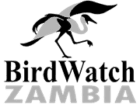Wetland Restoration
Wetlands
Wetlands are among the world’s most productive ecosystems. They play a crucial role in supporting both human and wildlife survival. They provide essential ecosystem services, support livelihoods, and contribute significantly to countries’ economies. In Zambia, wetlands cover about 19% of the country’s total land area, with 8 of them designated as Wetlands of International Importance under the Ramsar Convention.
In addition to being the most productive, wetlands are also the world’s most threatened ecosystems, with more than 35% of them believed to have disappeared over the last 5 decades. In Zambia, wetlands are degrading alarmingly, and this has mainly been through various causes such as disturbance in the flow regimes of rivers that drain wetlands, the spread of invasive species, encroachment of shrubs, fires, overfishing, pollution, as well as an increase in human settlements.
Degraded wetlands negatively affect wetland biodiversity as well as human well-being due to distortions in the provision of goods and services. Therefore, by restoring these wetlands, we are enhancing biodiversity conservation and reducing the possibility of driving wetland biodiversity into extinction.
Invasive Species Control
Invasive species are animals, plants, or other organisms that are introduced into places outside their natural range, negatively impacting native biodiversity and ecosystem services or human well-being (IUCN, 2024). Invasive species have long been known to be a major contributor to global biodiversity loss, ecosystem degradation, and deterioration of ecosystem services worldwide. In the last 500 years, species like rats, cats, and mice have driven more than 70 bird species to extinction. They remain one of the greatest threats to our natural world. The BirdLife Invasive Alien Species program unites the world’s largest partnership of national non-governmental nature conservation organisations to tackle the global extinction crisis. Invasive species are the second biggest driving force of species extinction after habitat loss. BWZ has been developing and implementing projects to tackle invasive alien species within Zambia. We are controlling invasive species at sites where they constitute a major conservation problem, particularly in wetlands.
Over the past years, we have been working tirelessly to control invasive species Salvinia molesta and Mimosa pigra on the Lukanga Swamps and Barotse Floodplains, respectively. By clearing invasive species, we are not only restoring the ecological health of the wetlands but also revitalising the livelihoods of local communities that are dependent on these resources.
Salvinia molesta, commonly known as Kariba weed, is a free-floating aquatic fern native to southeast Brazil. The aquatic weed has spread and colonized many water bodies worldwide. It is characterized by its slender stem, floating leaves, and root-like structures. It is one of the world’s worst weeds due to its high mobility, tolerance to environmental stress, exponential growth rate, and difficulties in controlling it.
Mimosa pigra (giant sensitive plant) is a semi-aquatic spiny shrub that infests wetlands native to tropical America (Mexico, Cuba, Northern Peru, and Northeast Argentina). Mimosa pigra forms dense stands that replace all native vegetation on the ecologically and economically valuable wetlands. In natural wetlands, the invasion threatens the production, cultural, and conservation values.
Numbers Don't Lie!
We believe in working with people to conserve Zambia’s rich diversity of bird specie and unique landscapes.
Satisfied Clients
Projects Completed
Accolades Earned
Lines of Code
Our History
Initially there was an ornithological branch of the then Wildlife Conservation Society. The Zambian Ornithological Society(ZOS) was formed during an inaugural meeting on 13 March 1969 by a group of keen birders and citizen scientists who wanted to promote and study birds in Zambia. Committee members were formally elected, a draft constitution was approved and the Wattled Crane was chosen as the society’s emblem.
Would you like to support our work us?
You can support our work by becoming a BirdWatch Zambia member or by donating.
Invasive species are animals, plants, or other organisms that are introduced into places outside their natural range, negatively impacting native biodiversity and ecosystem services or human well-being (IUCN, 2024).
Invasive species have long been known to be a major contributor to global biodiversity loss, ecosystem degradation, and deterioration of ecosystem services worldwide.
